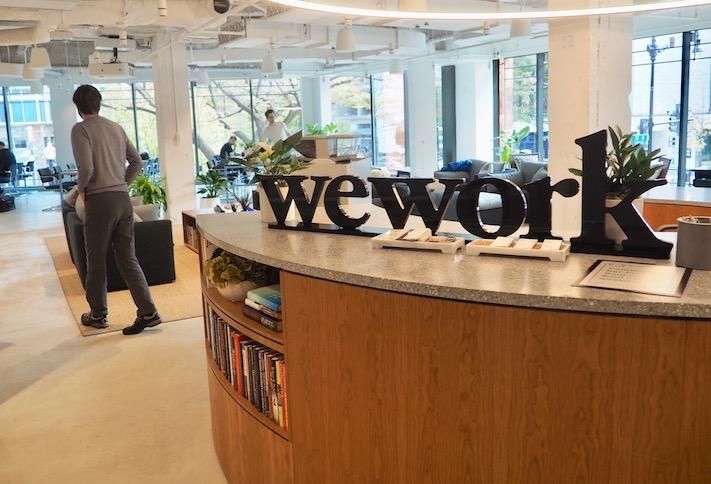WeWork, once a promising coworking startup that aimed to revolutionize the way we work, has officially filed for bankruptcy, marking the culmination of years of unraveling.
Co-founder Adam Neumann’s extravagant lifestyle and the company’s missteps have been well-documented, and it’s a saga that has inspired books and miniseries. This article delves into the wild moments of WeWork’s journey from success to bankruptcy, exposing the cracks in the myth of visionary founders.
The Rise and Fall of WeWork
Adam Neumann, charismatic and persuasive, sold his vision of creating a global community and challenging traditional office culture to eager investors. WeWork rode the wave of venture capital-backed funding, reaching a peak valuation of approximately $47 billion before its dramatic downfall. Neumann was eventually ousted in 2019 but left with a multimillion-dollar golden parachute, now working on a new venture in the real estate space.
However, not everyone emerged unscathed from WeWork’s collapse. Masayoshi Son, the legendary SoftBank investor, suffered significant financial losses and reputational damage while trying to prop up WeWork. Early employees, enticed by stock options, found themselves with nothing as the company faltered.
The Myths of the Tech Sector
WeWork’s rise and fall shattered the myth of visionary founders who could predict industry trends far in advance. It exposed the vulnerability of startups that were fueled by massive investments and charismatic leaders.
Here are four of the most astonishing moments from WeWork’s journey:
1. High-Flying and High on Marijuana
Adam Neumann had a penchant for marijuana, often indulging while flying on private jets. In the summer of 2019, Neumann and his entourage were caught smoking weed on a Gulfstream G650 private jet crossing the Atlantic. The flight crew discovered marijuana concealed in a cereal box for the return trip, leading to the plane’s recall and Neumann’s scramble to find alternate transportation. Reports suggest that private jets used by Neumann’s circle were sometimes left in a sorry state, with cabin crew needing oxygen masks due to thick marijuana smoke.
2. Mixing Layoffs and Tequila
Neumann’s affinity for tequila was well-known, and he didn’t hesitate to enjoy it in the workplace. Following a round of layoffs in 2016, Neumann addressed his staff during an all-hands meeting, emphasizing the necessity of cost-cutting measures. However, he then had employees serve trays of tequila shots, followed by a performance from Darryl McDaniels of Run-DMC. This mishandling of the situation left many employees perplexed.
3. WeGrow, WeLive, and Bold Ventures
WeWork ventured into unexpected territories, attempting to reinvent education and housing. “WeGrow,” a primary school for pre-kindergarten to fourth-grade children, was launched in 2018. Spearheaded by Rebekah Neumann, Adam’s wife, the school aimed to unlock every child’s potential. In addition to traditional subjects, students were taught yoga, meditation, and farming. WeWork also introduced “WeLive,” a co-living experiment offering hip dorm-style accommodations with extensive amenities. Despite initial enthusiasm, both ventures were eventually abandoned.
4. Pre-IPO Paperwork Reveals Conflict
WeWork’s first attempt to go public in 2019 marked the beginning of its troubles. The S-1 filing revealed substantial losses and raised doubts about the company’s path to profitability. It also exposed conflicts of interest, such as Neumann and his partner registering a trademark on the word “we” and charging the company nearly $6 million for its commercial use during rebranding.
The Post-Neumann Era and the Pandemic
Adam Neumann, while expressing disappointment at WeWork’s bankruptcy, still held hope for its future. However, the company faced additional challenges as the COVID-19 pandemic hit shortly after Neumann’s departure. The pandemic disrupted WeWork’s core business of coworking spaces, with many employees transitioning to remote work. As a result, empty offices became a common sight across major American cities.
WeWork’s rise and fall serve as a cautionary tale in the world of startups. It underscores the importance of responsible leadership, sound financial practices, and a sustainable business model. As the company navigates bankruptcy, it remains to be seen if it can rise from the ashes and redefine its place in the evolving world of workspaces.









Leave a Reply